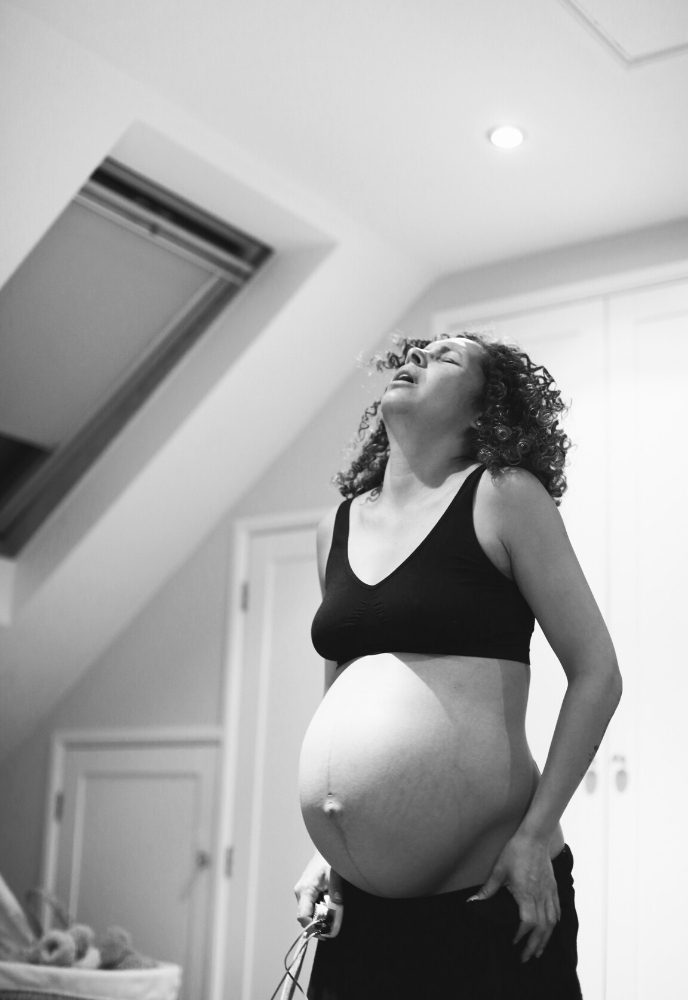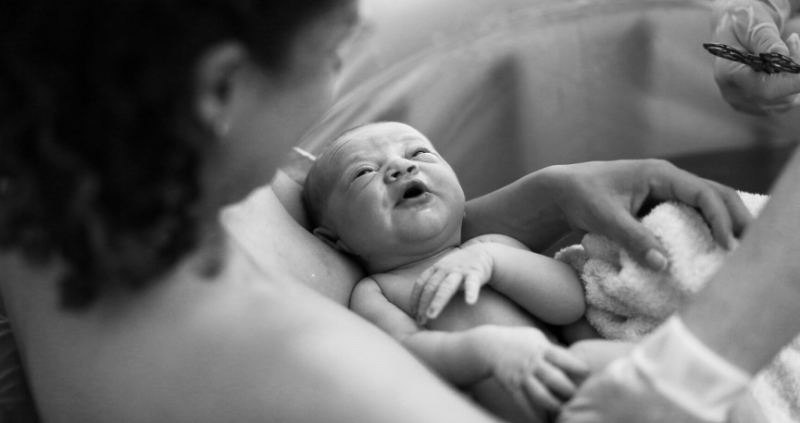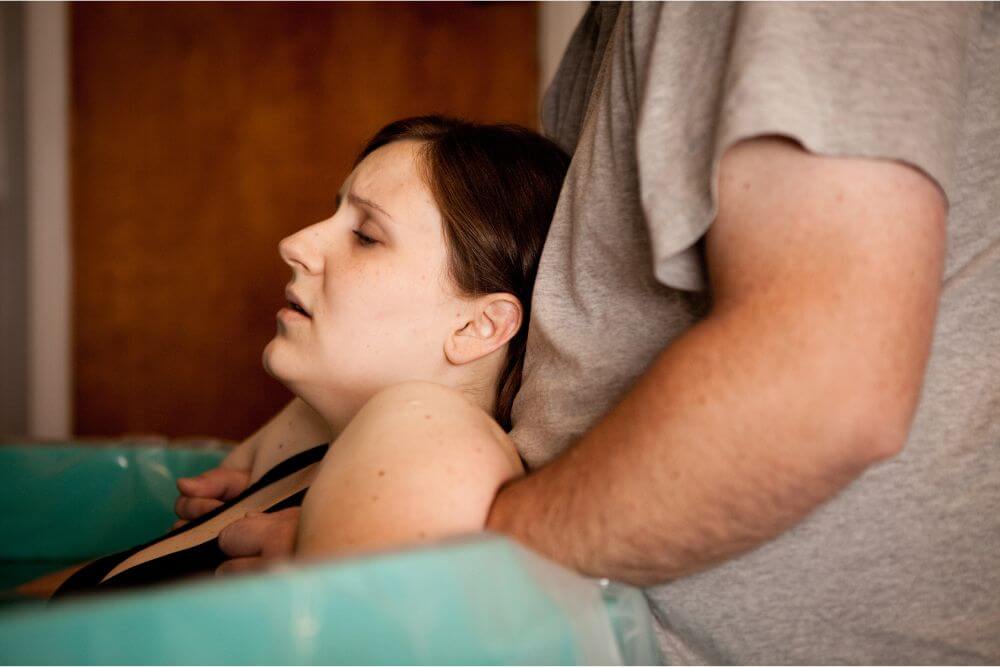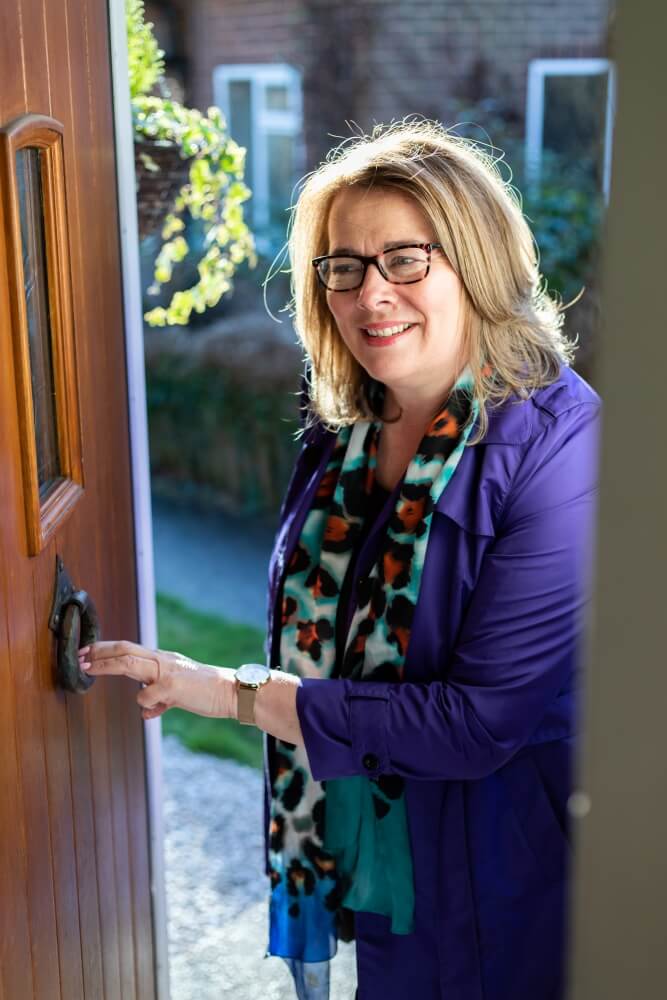Do you like the idea of labouring in the privacy of your own home? Do you long to curl up with your just-born baby in your own bed? If so, you may want to consider having your baby at home. Find out how you request a home birth and the reasons why you may be advised against having one.

Can anyone have a home birth?
As long as your pregnancy is going well and you are healthy, you should be able to have a home birth. If you’ve had a baby before, and the birth was complicated, you may be advised to have your next baby in hospital. But this doesn’t mean you can’t have a home birth. Some women go ahead, even though they are not “ideal” candidates. A great source of information on your rights to your choice of birth location is Birthrights
Likewise, you may be very keen to have a home birth, even if your current pregnancy has not gone as well as you would have hoped. Or you may have a medical condition which means your midwife and doctor are advising you to give birth in a hospital. If this applies to you, talk over your hopes for a home birth with your consultant, your midwife or the Consultant Midwife at your hospital. They will help you weigh up the risks before you make a decision. If the advice remains to come into hospital but you’re certain you want a home birth, your choice should be respected. You can find more stories of women’s experience at www.homebirth.org.uk
How do I organise a home birth?
Tell your midwife or GP that you want a home birth during one of your antenatal appointments. You’re often asked where you want to have your baby quite early on in your pregnancy and your choice is recorded in your maternity records. Later on in your pregnancy, your midwife will explain what you need to do to prepare for your home birth. She can also explain how the midwives in your area organise themselves to cover home births.
How popular are home births?
It’s hard to say exactly how popular home births are. We do know that more women want a home birth than actually have one. Home births are more common in some parts of the UK than others:
- in England, about three in every 100 births are at home
- in Scotland, fewer than one in every 100 births is at home
- in Northern Ireland, fewer than one in 200 births is at home
Some maternity units are better set up for covering home births than others. You can find out what your local unit’s home birth rate is by searching for Which birth choices on line .
Can I change my mind?
Yes, you can opt to go to the hospital at any time during your pregnancy or labour. Modern midwifery services offer care that suits you as an individual. Your choices may change as you get nearer the birth of your baby, and your midwife understands that. It could be that your pregnancy becomes more complicated and home birth is no longer a good option for you. Or you may simply change your mind. Try to keep an open mind. Be ready to work out a new plan with your midwife, if you don’t want a home birth, after all.
What happens if I need to go to hospital in labour?
Don’t worry if you need to go to the hospital. Transfers from home to hospital during labour or just after birth are fairly common. In fact, about one in seven mums-to-be is taken to hospital. The transfer rate is lower for women who have had a baby before and higher for first-time mums. The two most common reasons why you may be transferred to the hospital are:
- your labour is taking a very long time (called slow progress)
- you want pain relief that you can’t have at home, such as an epidural.
Your midwife will monitor you and your baby during labour. If she suspects a problem is developing, she will recommend that you transfer into hospital in good time and make the arrangements for transfer by ambulance.

Is Home Birth an option during the Covid 19 pandemic?
There has been several differing messages around Home Birth during the pandemic and a mixed response to whether it is best to continue or stop the Home birth service. Initially there were suspensions to Home Births by many units with limited staff and overstretched ambulance services cited as the reasons.
So let’s take a look at whether Home Births in the current situation will have a negative impact on the ambulance service.
Birth, in general, is very safe. and home births only occasionally require an ambulance. 12% for women who have given birth before, and around 45% for women who are having their first baby (Birthplace in England Collaborative Group, 2011). However, it is important to note that of these transfers by ambulance around 5.3% are thought to be for emergencies O’Brien (2020). This figure equates to around 921 per year, or 2-3 per day, in the UK, which aligns with the conclusions of Blix et al. (2014).
The important things to note is that the majority of transfers – 95% – are not carried out as an emergency. Ambulances are generally used for all transfers, as it is important for the midwife to stay with the labouring woman until care is taken over at the hospital, and this way they can travel safely together. It is important to question if this is necessary during the current time? For instance, private midwives can provide a transfer in a car or taxi as long as they remain with the woman and can use their own car in a non emergency situation as long as thy are insured to do so. This alleviates the pressures on the Ambulance service. So why can;’t this become the preferred method during these times?
So in essence we believe Home Births should be a viable option for you during the Covid-19 pandemic, and in fact may become a preferred choice for many mums-to-be, with you being at home with your partner, and avoiding hospital where possible.
If you are struggling to decide on what would be the best option for you and want access to an experienced midwife, come and join the Complete Hypnobirthing and Newborn Course.











0 Comments